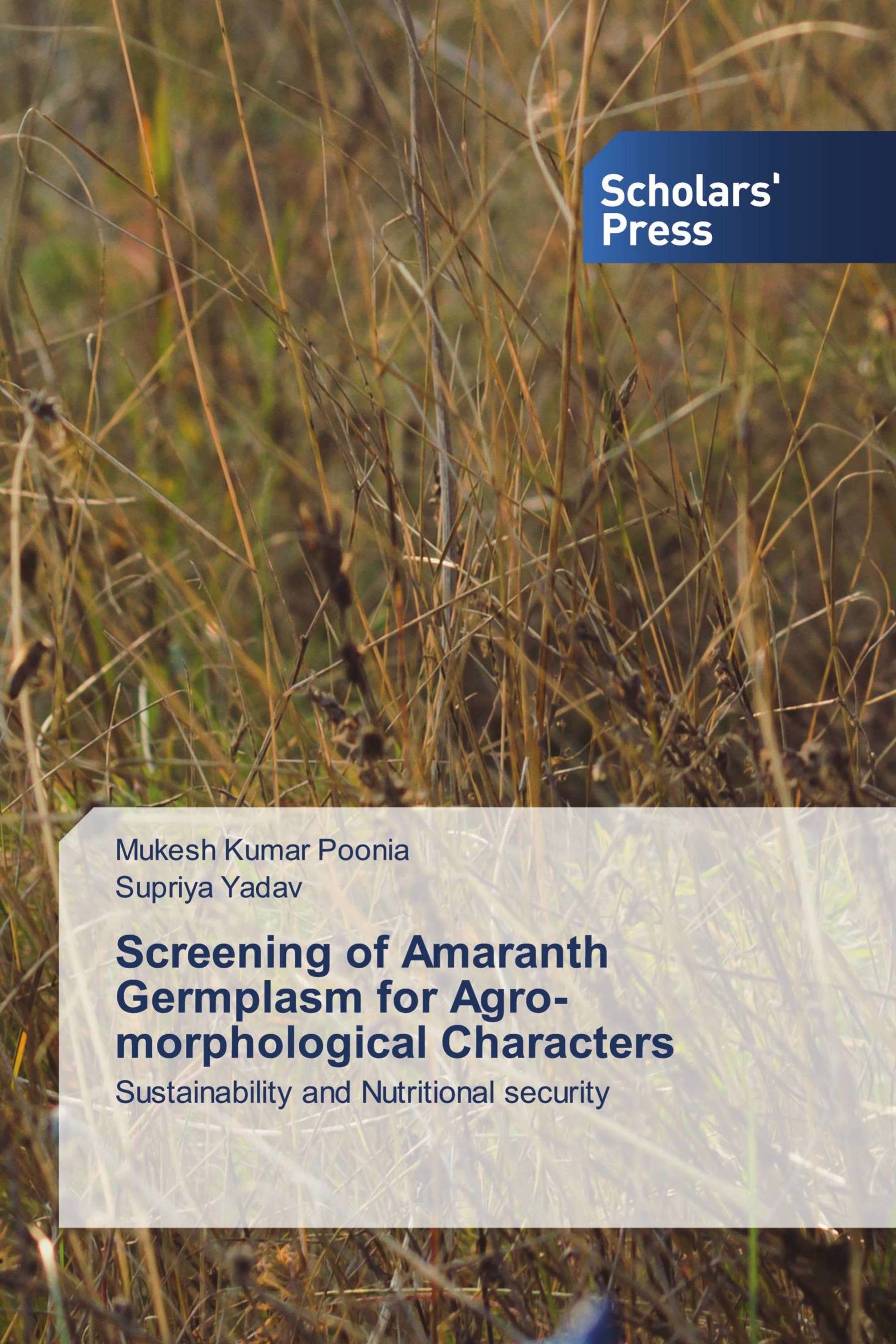Screening of Amaranth Germplasm for Agro-morphological Characters
Sustainability and Nutritional security
International Research Press ( 27.09.2023 )
€ 65,90
Amaranth is a pseudocereal, cultivated over a wide range of agro-climatic conditions with temperature range of 20 - 40°C, elevation 500-2500 meter above mean sea level and rainfall between 800 mm to 1500 mm. Amaranthus comprises 70 species of C4 dicotyledonous herb out of which 18 species are available in India and being C4 plants suitable to survive and flourish under adverse climatic conditions. Amaranth is an excellent source of iron and β-Carotene and can help in alleviating iron and vitamin A deficiencies. Proteins from amaranth have better balanced amino acid compositions and higher biological values as compared to the cereals, it has maximum amount of glutamic acid (2.259 g) followed by glycine (1.636 g) and aspartic acid (1.261 g) per 100 gram of amaranth grains (Maurya and Arya, 2018). Presence of high amount of folic acid can help to increase blood haemoglobin level. Amaranth seed oil has 8% Squalene, a powerful antioxidant which reduces cancer and has hypocholestromic effect.
Détails du livre: |
|
|
ISBN-13: |
978-620-6-76960-6 |
|
ISBN-10: |
6206769607 |
|
EAN: |
9786206769606 |
|
Langue du Livre: |
English |
|
de (auteur) : |
Mukesh Kumar Poonia |
|
Nombre de pages: |
116 |
|
Publié le: |
27.09.2023 |
|
Catégorie: |
Agriculture, Horticulture, Sylviculture, Pêche, Nutrition |



